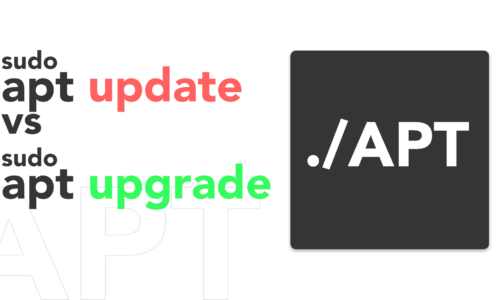When it comes to software, you will frequently come across file types with extensions such as .deb, .rpm, and .msi. For some, these might just appear as mere tech jargon, while for others, they represent the lifeline of their operating systems, managing the software applications they use daily. However, what exactly are they and what distinguishes them from each other? Well, here we are, delving into each of these file types, explaining what they are and how they differ.
Understanding Package Managers
To understand .deb, .rpm, and .msi files, we first need to discuss package managers. These are essential tools for managing software applications. They streamline the procedures of installing, upgrading, configuring, and uninstalling computer programs on operating systems.
.deb Files
The file extension “.deb” is associated with the Debian software package format, which is commonly used for binary packages. This package format is utilized by Debian and Debian-based Linux distributions like Ubuntu.
.rpm Files
.rpm stands for RPM Package Manager (which is a recursive acronym). The .rpm format is used by various Linux distributions, including Red Hat, CentOS, and Fedora. It contains the compiled software programs, along with metadata that the computer reads to handle dependencies and track the software once installed.
.msi Files
.msi files, on the other hand, are Microsoft Installer files used in Windows. These files contain installation information for a particular software, including the file locations, installer properties, and other necessary details.
Differences between .deb, .rpm, and .msi
While these file formats – .deb, .rpm, and .msi – share the common purpose of packaging software and facilitating its installation, they each have distinct characteristics catering to their respective operating systems. Their differences can be broadly classified under two categories: compatibility and use and file structure and installation process.
1: Compatibility and Use
.deb vs .rpm
Both .deb and .rpm files serve as software packages within the Linux environment but cater to different distributions. The standard package format for Debian and its derivatives, including Ubuntu, Linux Mint, and Pop!_OS, among others, is the “.deb” file format. These package files are used in conjunction with Debian’s package management system, APT (Advanced Package Tool).
.rpm, on the other hand, stands for RPM Package Manager. This format is used by Red Hat and other distributions that are derived from or maintain compatibility with it, including CentOS, Fedora, and openSUSE.
.rpm vs .msi
.rpm and .msi files are used in entirely different operating systems. The former is for Linux distributions, while the latter is for Windows OS.
.deb vs .msi
Similarly, .deb and .msi files are incompatible since .deb is used in certain Linux distributions, and .msi is used in Windows.
2: File Structure and Installation Process
.deb Files
.deb files contain two tar archives for the actual files and metadata. Installation involves unpacking the archives and setting up the software.
.rpm Files
A .rpm file, like a .deb file, contains compiled software programs along with metadata about the package. However, instead of tar archives, it contains a header with metadata and a payload, which is typically a cpio archive containing the actual files. The RPM package manager installs a .rpm file by unpacking the payload, resolving dependencies with the help of metadata, and setting up the software on the system.
.msi Files
Unlike .deb and .rpm files, which are archives, a .msi file is a database. It consists of various tables containing data and instructions needed to install and configure the software.
Conclusion
The .deb, .rpm, and .msi files are all software package files used in different operating systems: .deb for Debian-based Linux distributions, .rpm for Red Hat-based Linux distributions, and .msi for Windows. They all differ in terms of compatibility, file structure, and the installation process.



